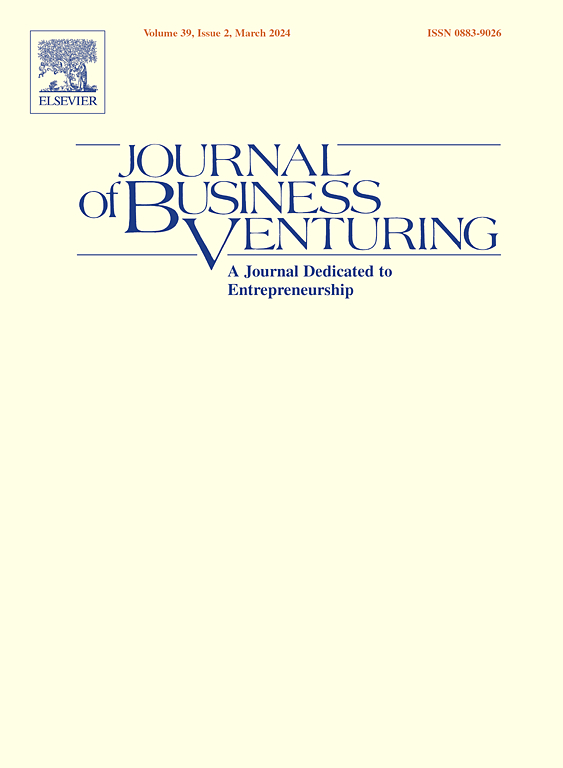Tell me “how” and “why”: Mentor feedback framing, construal level, and entrepreneurial pivoting
IF 8.9
1区 管理学
Q1 BUSINESS
引用次数: 0
Abstract
Entrepreneurial pivots can mean the difference between venture failure and survival. Mentor feedback often illuminates the essential need to pivot, but the manner in which feedback is delivered may determine whether entrepreneurs act on it and pivot. Drawing on the feedback literature and construal level theory, we hypothesize that mentor feedback provided in a concrete manner will increase the likelihood that entrepreneurs will pivot. Further, we examine how temporal distance, mentor expertise distance, and entrepreneurial experience, affect entrepreneurs' responses to feedback. We test our hypotheses using a conjoint analysis with a validation study; gain additional insights from a qualitative study of mentors; and test a way to improve entrepreneurial receptiveness to abstract feedback from mentors through a second conjoint analysis design. In doing so, we contribute to the entrepreneurship literature on pivoting and mentoring.
告诉我“如何”和“为什么”:导师反馈框架、解释水平和创业中心
创业支点可能意味着创业失败和生存之间的差异。导师的反馈通常会说明转向的必要性,但反馈的传递方式可能会决定企业家是否采取行动并转向。根据反馈文献和解释水平理论,我们假设以具体方式提供的导师反馈将增加企业家转向的可能性。此外,我们还考察了时间距离、导师专业知识距离和创业经验对企业家反馈反应的影响。我们使用联合分析和验证研究来检验我们的假设;从导师的定性研究中获得更多的见解;并通过二次联合分析设计,检验提高企业家对导师抽象反馈接受度的方法。在这样做的过程中,我们为关于转向和指导的创业文献做出了贡献。
本文章由计算机程序翻译,如有差异,请以英文原文为准。
求助全文
约1分钟内获得全文
求助全文
来源期刊

Journal of Business Venturing
BUSINESS-
CiteScore
16.70
自引率
6.90%
发文量
59
审稿时长
77 days
期刊介绍:
The Journal of Business Venturing: Entrepreneurship, Entrepreneurial Finance, Innovation and Regional Development serves as a scholarly platform for the exchange of valuable insights, theories, narratives, and interpretations related to entrepreneurship and its implications.
With a focus on enriching the understanding of entrepreneurship in its various manifestations, the journal seeks to publish papers that (1) draw from the experiences of entrepreneurs, innovators, and their ecosystem; and (2) tackle issues relevant to scholars, educators, facilitators, and practitioners involved in entrepreneurship.
Embracing diversity in approach, methodology, and disciplinary perspective, the journal encourages contributions that contribute to the advancement of knowledge in entrepreneurship and its associated domains.
 求助内容:
求助内容: 应助结果提醒方式:
应助结果提醒方式:


